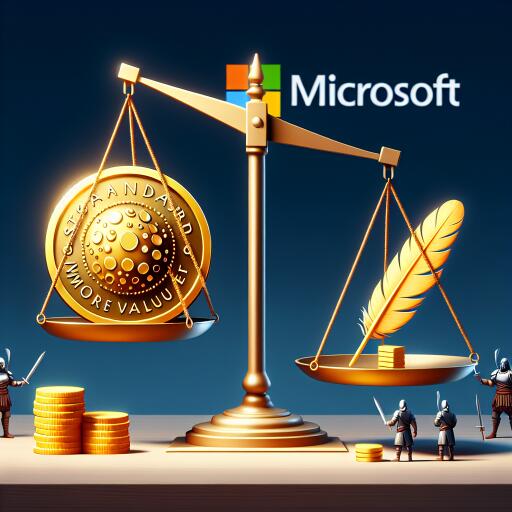Microsoft Responds to Game Pass Pricing Concerns, Highlights Enhanced Value with Standard Tier
In a move that took the gaming community by surprise, Microsoft recently unveiled significant changes to its Xbox Game Pass service, including notable price hikes and the introduction of a new tier named Game Pass Standard. This new tier has stirred a range of emotions and reactions among the gaming populace, notably because it replaces the previous Game Pass for Console option. However, it’s not just the pricing adjustments that have gamers talking; the restructuring of the benefits, particularly the exclusion of day-one game releases from the Standard tier, has raised eyebrows and prompted criticism.
The situation escalated when the US Federal Trade Commission (FTC) weighed in, accusing Microsoft of leveraging its recent acquisition of Activision Blizzard to downgrade the Xbox Game Pass service intentionally. According to the FTC, this move seemed aimed at diminishing the value offered to gamers, a stance that positioned the tech giant unfavorably in the public eye.
Microsoft, however, fervently disputes such claims. In a detailed statement, the company outlined its perspective, emphasizing the purported value uplift with the newly instated Game Pass Standard tier. According to Microsoft, while the decision to omit day-one game releases from the Standard offering might sour some, the inclusion of multiplayer functionalities presents an unheralded value proposition that wasn’t previously available under the old Game Pass for Console framework. This enhancement, Microsoft argues, offers a rounded gaming experience without necessitating separate purchases or subscriptions for online play, thereby enriching the overall package.
Further countering the FTC’s allegations, Microsoft insists that these changes are not designed to degrade the Game Pass service but rather to adapt and evolve it to deliver greater value and satisfaction to its user base. The corporation posits that the FTC’s focus has been unduly concentrated on potential monopolistic behaviors, particularly in relation to the accessibility of flagship titles like Call of Duty. In this narrative, Microsoft points to its strategic partnership with Sony, which includes a decade-long agreement to ensure Call of Duty remains available on PlayStation platforms—a move that, in Microsoft’s view, definitively counters any argument of intentional service degradation.
The debate over whether Game Pass Standard represents an upgrade or downgrade is heavily subjective, hinging on individual preferences and gaming habits. Players who prioritize online multiplayer experiences may find the new structure more economically favorable, while those who have a keen interest in accessing new releases as part of their subscription might perceive it as a step backward.
As the gaming community continues to digest these developments, the broader implications for the Xbox ecosystem and the competitive landscape remain to be seen. Microsoft’s adjustments to the Game Pass service underscore the dynamic nature of the video game industry and the ongoing recalibration of value propositions in a rapidly evolving market.
For gamers and enthusiasts keen on staying abreast of the latest shifts and shuffles within the Xbox realm, including the evolving catalog of Xbox Game Pass offerings, the narrative is far from concluded. As the situation unfolds, further details and perspectives are anticipated, shedding light on Microsoft’s strategic direction and its implications for the broader gaming ecosystem.








